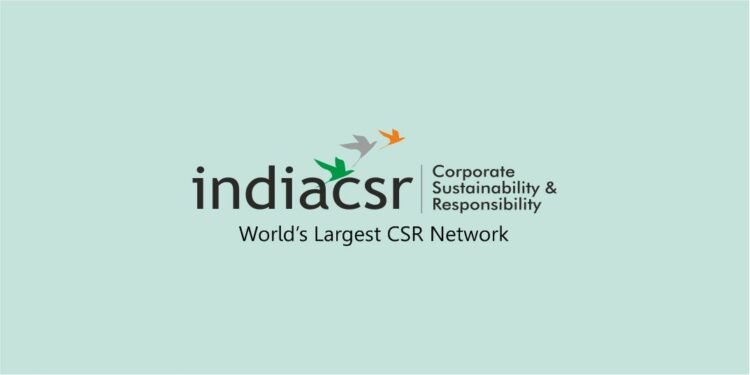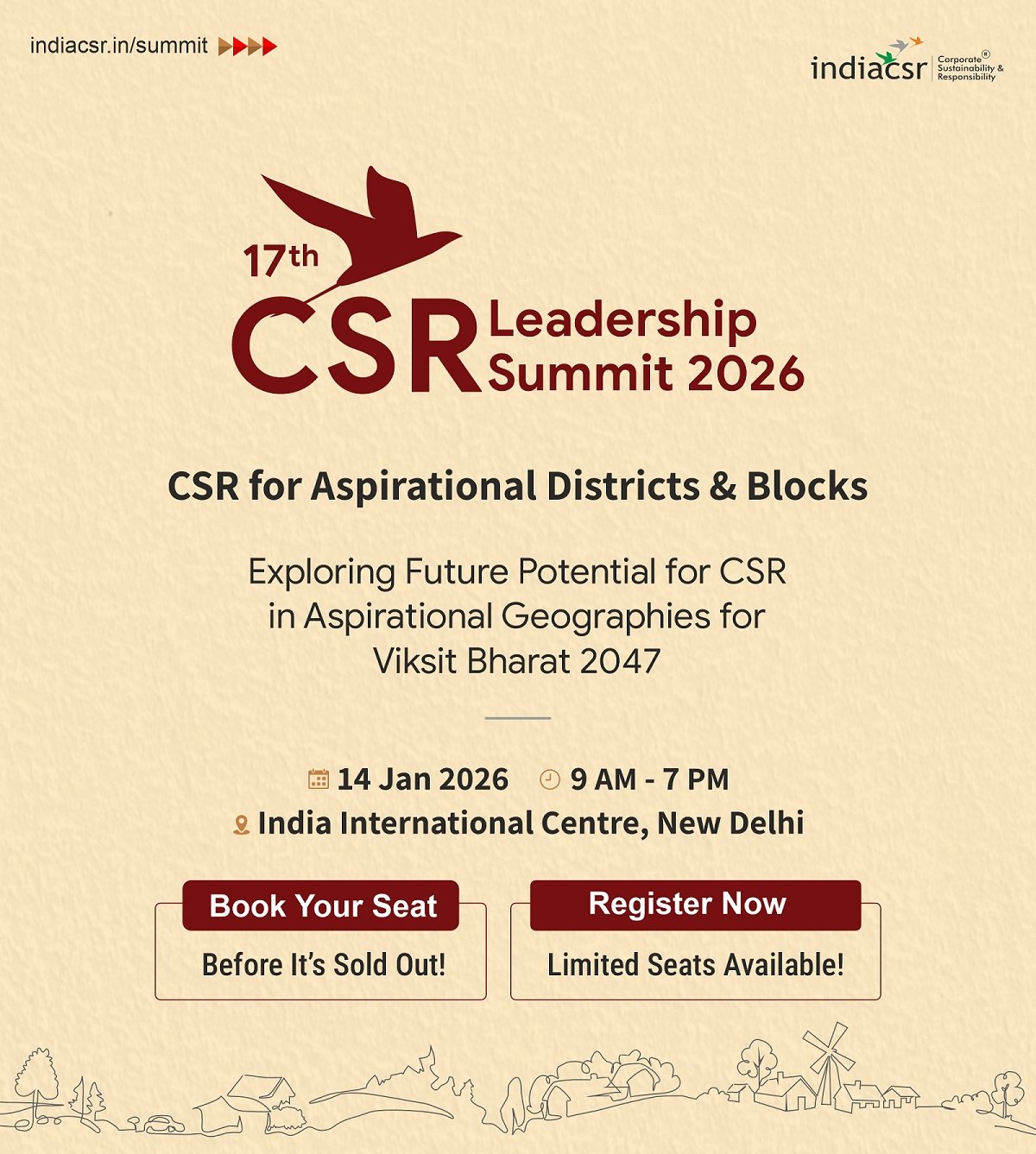By PK Joseph
CSR is essentially a concept whereby companies decide to spent a certain percentage of their net profit either voluntarily or on the account of the legislation, to contribute to make a better society and a cleaner environment. CSR strictly speaking does not imply charity, sponsorship or philanthropy. It is a process through which a company achieves a balance of economic, environmental and social obligation. CSR is now viewed as integral part of business strategy to minimize the business risks linked to uncertainty. If we speak in the terms of the provisions made under The Companies Act 2013, CSR entails:
(i) Projects or programs relating to activities specified in Schedule VII to the Act; or
(ii) Projects or programs relating to activities undertaken by the board of directors of a company (Board) in pursuance of recommendations of the CSR Committee of the Board as per declared CSR Policy of the company subject to the condition that such policy will cover subjects enumerated in Schedule VII of the Act.
Corporate Social Responsibility (CSR) Sector is emerging as a rapidly growing and promising career domain. It is very true that there is a lot of hype today in the CSR domain. This has happened on account of several reasons. First of all, India is the only country that has brought out legislation on CSR. Every public sector or private sector company that fulfils certain criteria has to spend 2% of its net average profit of the immediately preceding three years.
This is mandated by Companies Act 2013 and the New CSR Rules 2014 that has come in to effect from April 2014. Subsequent to the passing of Media Reports – 1 lakhs jobs over the next 6 years, 16,000 companies coming to the CSR Fold, 22,000 crores to be generated. Moreover, the liberalized and globalised Indian economy is witnessing shrinking role of state and growing role of Corporate and Business in overall development of country.
Corporates with their wider reach, professionalism, innovation and wealth have the ability to influence the pace of growth and development. Further, the public expectations from corporate and business are growing. Indians feel that business sector must play a wider and more expansive societal role. In addition to providing good quality products at reasonable prices, companies should strive to make their operations environmentally sound, adhere to high labor standards, reduce human rights abuses and mitigate poverty. They need trained professionals to run them, whom they are ready to pay corporate-level salaries.
The sector unlike other spheres is diverse, the reason is distinct nature of activities of the parent organizations. Due to this opportunities exist within the private, public and voluntary sectors. It is important to highlight that many CSR roles may not be titled as such but their job content may reflect CSR activities. In Private Sector larger companies may have CSR departments or have CSR functions located within particular areas including marketing, communications, environmental management, public affairs, investor relations, finance, operations and human resources. Opportunities are also opening up in the large accounting and consulting firms, many of which are trying to compete with the niche CSR consulting firms by offering their own CSR client services. Whereas in Public Sector CSR career options can be found in national government agencies, PSUs and international organizations.
There are a wide variety of non-governmental organizations (NGO’s), industry associations, think tanks and academic institutions engaging in learning and/or advocacy within the CSR arena. Such groups promote and examine the use of CSR concepts within the private and public spheres. It can be better understood by an example: Major Corporations have their CSR wing which are exclusively dedicated for doing community development and CSR activities directly or indirectly in the vicinity of their operations sector. Whereas in other companies CSR activity is undertaken by the HR, marketing, corporate communication or the Department dealing with Environmental matters.
It is observed that companies whose operations directly impact the nature like mining, manufacturing, power generations etc have CSR wing that is quite active. They tackle the grievances of nearby population and engage the stakeholders. In green field projects we have seen corporate giants and Govt. struggling hard to get the land acquisitions and Resettlement and Rehabilitation (R&R) issues solved, here also CSR professionals are in great demand.
CSR is yet to develop as a distinct career path and there is no single professional body at present that represents the needs and interests of all those working in the CSR domain. This is due to the diverse disciplines involved and also the complexity of the roles and responsibilities of a CSR practitioner. It is an emerging sector which has got a great impetus post the government mandate of making CSR an essential requirement for corporates. The process of establishing and responding to the CSR agenda within an organization will require specialists who have experience in various fields like social work, health, education and disaster management etc.
There are diverse roles for CSR Professionals and they come from range of disciplines. Hence, it is hard to be very precise. However, there are some major skills required for successful CSR Professional:
(a) Business skills (including building insight, communication skills, decision making, commercial awareness, IT, innovation, strategic awareness, leadership, handling complexity and problem solving)
(b) People skills (including adaptability and empathy, developing others, influencing without power, open minded, integrity, political awareness, self-development and learning, building partnerships, team working and questioning “business as usual”)
(c) Technical skills (including technical expertise, understanding impacts, stakeholder dialogue, internal consultancy, selling the business case, understanding human rights and understanding sustainability).
From above three skills, following 6 core competencies are listed for managers involved with CSR in organizations:
- Understanding society
- Building capacity
- Questioning business as usual
- Stakeholder relations
- Strategic view
- Harnessing diversity
CSR sector recruits its major workforce from among the professionals who are in to Social work, rural development and other developmental fields to undertake and manage the CSR activities of company. There are an increasing number of qualifications becoming available at Masters Level and as part of MBA courses. The professional courses like Master of Social Works (MSW), MBA in rural development and Post Graduate Diploma in Rural development etc. offered by different universities and reputed institution may be right option for career in CSR.
It is a challenge for those who are just getting started in the CSR Sector, as most Corporations would look for candidates who have some relevant CSR Experience. Getting on board with a specific company can sometimes become a challenge. Hence, a possible solution would be to opt for Internship of couple of months and gain experience.
Many direct CSR roles require specialist knowledge and business experience and therefore may not be open to those on graduate programs or just starting out with a company. You may have to take a longer term strategy and build up your skills and experience in relevant areas first. However, there are jobs out there so here are a few tips:
- Companies recruits professionals both fresher and experienced through advertising in media or internal sources.
- Search-out the companies/foundations/trust of company owners doing CSR Works.
- Think hard about organizations you admire and research their values and culture. What is their stance on CSR? Is it embedded in their core values? Do they have opportunities for getting involved with CSR activities? Search out their Websites and CSR Sections.
- Most of the CSR Jobs are done by NGOs so search out the NGOs having linkages with big corporate.
- Some consultancies have CSR departments and take on people in this area. For environmental consultancies with a CSR interest check out these too.
- Get some CSR experience by securing an internship, work placement or by volunteering to assist an organization with their CSR project.
- Keep up to date with CSR developments. Monitor CSR websites and newspaper articles.
- Consider further study. Some consultancies for example, prefer graduates with business or NGO experience and/or a Masters level qualification in a CSR related area.
- Monitor online job listings or register with a recruitment agency that handles CSR vacancies.
Any career opportunity won’t be sought after unless a healthy remuneration is associated with it. Remuneration expectations among other factors decide the career path of an individual. The type of remuneration which can be expected while working in a CSR wing of an organization is:
- Junior level: Rs 5 lakh (per annum)
- Mid-level: Up to Rs 15 lakh (per annum)
- Senior-level: Rs 40-60 lakh.
- Exceptional and top CSR Positions can go up to Rs 1 crore for CEOs
The perks associated with CSR are good enough to grab the eyeballs but the pertinent issue is how one can get these jobs. There are many institutes which offer courses that could land one a job in the CSR sector. Some prominent institutes which offer courses related to CSR are:
- MBA in Sustainability, BIMTECH, Greater Noida
- MBA in Sustainability, TERI University
- The Institute of Corporate Sustainability Management (ICSM) MBA in CSR at Delhi NCR (Gurgaon), MBA in CSR is affiliated to the University of Mysore. The Indian Centre for CSR (ICCSR) has collaborated with University of Applied Sciences, Vienna, Austria to offer India’s first MS Program in CSR & Ethical Management. The study centre of the ICCSR MS Programme is located in Navi Mumbai. Master of Science (MS in CSR and Ethical Management) is available for full time students and working professional and working Professionals (Distance Learning)
- National Foundation for Corporate Social Responsibility (NFCSR), IICA and Ministry of Corporate Affairs has started ‘IICA Certificate Programme (ICP) in CSR’ as a capacity building programme for CSR professionals. It is a nine months program, delivered primarily through an online Learning Management System (LMS). The first batch of the programme was recently launched on 13th October 2014.
- Tata Institute of Social Sciences (TISS)
- Delhi School of Social Work, University of Delhi
- Bosco Institute of Social Work, Sacred Heart College, Chennai
- Jamia Millia Islamia, Jamia Nagar, New Delhi
- National Institute of Rural Development (NIRD) Hyderabad
- Institute of Rural Management- Anand, Gujrat
- Xavier Institute of Social Service Purulia road,Ranchi.
- Xavier Institute of Management, Bhubaneswar
- Gandhi Gram Rural Institute, Gandhi Gram, Dindigul.
- Indira Gandhi National Open University, Maidan Garhi, New Delhi (correspondence course).
Condition: India CSR does not permit other websites/Agency to copy or reproduce or reprint the above article in any form.
Disclaimer: The views expressed by the author in this feature are entirely his own and do not necessarily reflect the views of India CSR.








